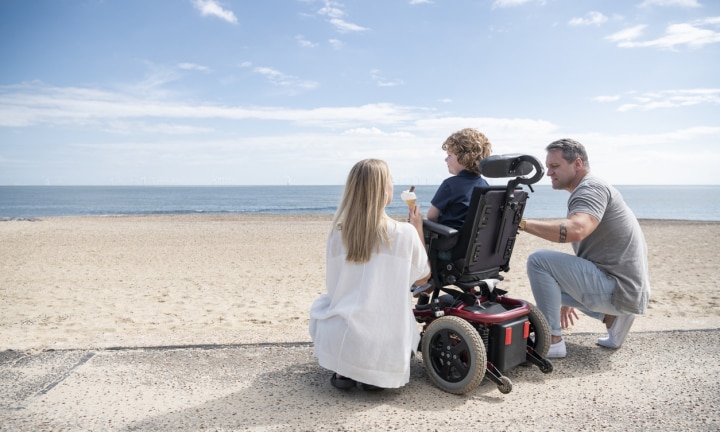
While self-care is an attainable goal for most parents, for others it remains an aspiration.
It is a well-known fact that parents never stop worrying about their children – even when their children become adults. But for the parents of kids with mental and physical disabilities, or dependencies, there is no choice. While self-care is an attainable goal for most parents, for them it remains an aspiration.
My mother passed away prematurely in her thirties, so I (more than most) understand the fragility of life, of making the most of every day, and the importance of looking after myself, And yet, while self-care is on my daily to-do list, it’s just not that simple to fit it in with my work and domestic commitments, as well as the unofficial care of my adult son.
My ‘child’ is twenty-two
We are lucky, for the main part he manages to function with his mental health issues of ADHD, anxiety, and OCD, but when he sinks into depression, he can spiral quickly towards suicide ideation. That means that my husband and I are always actively caring for him on some level – at a time in our lives when we should be focusing on our own health. While we are fortunate that he doesn’t require physical care (and that neither of us work full-time), we are on call all of the time – to transport him to his medical appointments, as his financial back-up, to be his emotional support when he hits rock bottom, and to help him keep on top of the organisation of his life.
Research has acknowledged that women do the lion’s share of the emotional and domestic labour in many homes, as well as being the main carers in situations such as these. Juggling the needs of my son with my work commitments and my other responsibilities has increased my anxiety to such a degree that the pressure has forced me to leave several jobs and to take medication to cope with the stress.
Ours is a common story, particularly in an age when more and more young adults are struggling with mental health issues. I know this because I used to run a local support group for the parents of kids with ADHD in which we organised and subsidised a self-care day for parents and carers. What I remember most about that day was the overwhelming feeling of gratitude from the parents in the room – in part, due to our acknowledgment of their unpaid work, and in part because they were being given a well-deserved break.
Research cited on Psychology Today from Barkley and colleagues found that mothers of children with mental illness were two to three times more likely to be depressed than the mothers of healthy children.
Louisa’s son is dependant on her at age 22. Image: iStock.
“It’s tough”
Mary is the perfect example. Mother to a young adult with ADHD and Bipolar Disorder, she says:
“It’s tough. You don’t get a lot of empathy from people because their disability is not tangible. To the outside world my daughter is working, studying and living ‘independently’, and therein lies the problem because that independence is fraught with bad decisions and choices. Relationships, money and work are constantly under threat. Life is unpredictable; no news can be good news or it might mean a significant change in her emotional stability. As her parent, ‘self-care’ means space away from her, whilst in my heart, I know what she really needs is to be cared for.”
There is no less hardship – although perhaps less stigma – for families of children and adult dependents with physical disabilities. Friends of ours, whose son recently suffered a broken back and damaged spinal cord in a freak rugby accident, know all about that. They are still coming to terms with how the accident will impact their family’s future. Aside from the emotional impact of the tragedy, the long-term care required by their son will have enormous financial implications for them and there is also the fear of who will look after him once they have gone.
While their short-term goal is to raise enough money to get their son back home, long-term they have mounting medical costs to consider and their son’s mental health and the ongoing care of his siblings, before they can start to process their own needs.
Physical disabilities bring similar hardships, but less stigma. Image: iStock.
“Intervention does help reduce parents’ stress”
On the bright side, research shows that intervention does help reduce parents’ stress.
So what can parents like us do to look after ourselves, particularly when our free time is limited and many of us are already compromised financially by reduced working hours in order to care for our children?
The good news is that self-care doesn’t have to break the bank and it comes in many shapes and forms. It may come in the form of professional help, ie. Counselling, parenting training or stress management – some of which is free or subsidised by Medicare; it may come in the form of medical assistance, such as antidepressants, or it may simply come in the form of personal relaxation strategies such as a hobby, meditation, or exercise.
I spoke with Psychologist Debra Lawler from Berry and Reynolds Psychology who is used to meeting parents such as myself who turn to therapy when they feel burnt out. She says that self-care is often the first thing that goes missing when caring for a child with mental health problems, and she offered the following recommendations for some simple, affordable ways to keep on top of our own health:
So, in answer to the question of whether self-care is a possibility for these parents, the truth is that it has to be – for the sake of their own health and for the ongoing welfare of their children. It may be necessary to try a range of strategies before they find the right one. For me, it is writing, swimming and jogging, but a brisk walk is also an effective, quick fix.
Being at one with nature helps remind me of the beauty in the world and the many things I have to be grateful for – not least of which is my enduring love for my son and my empathy for his struggles. A brisk walk in the sunshine is sometimes all it takes to recalibrate my body for the next stage of our journey together.
